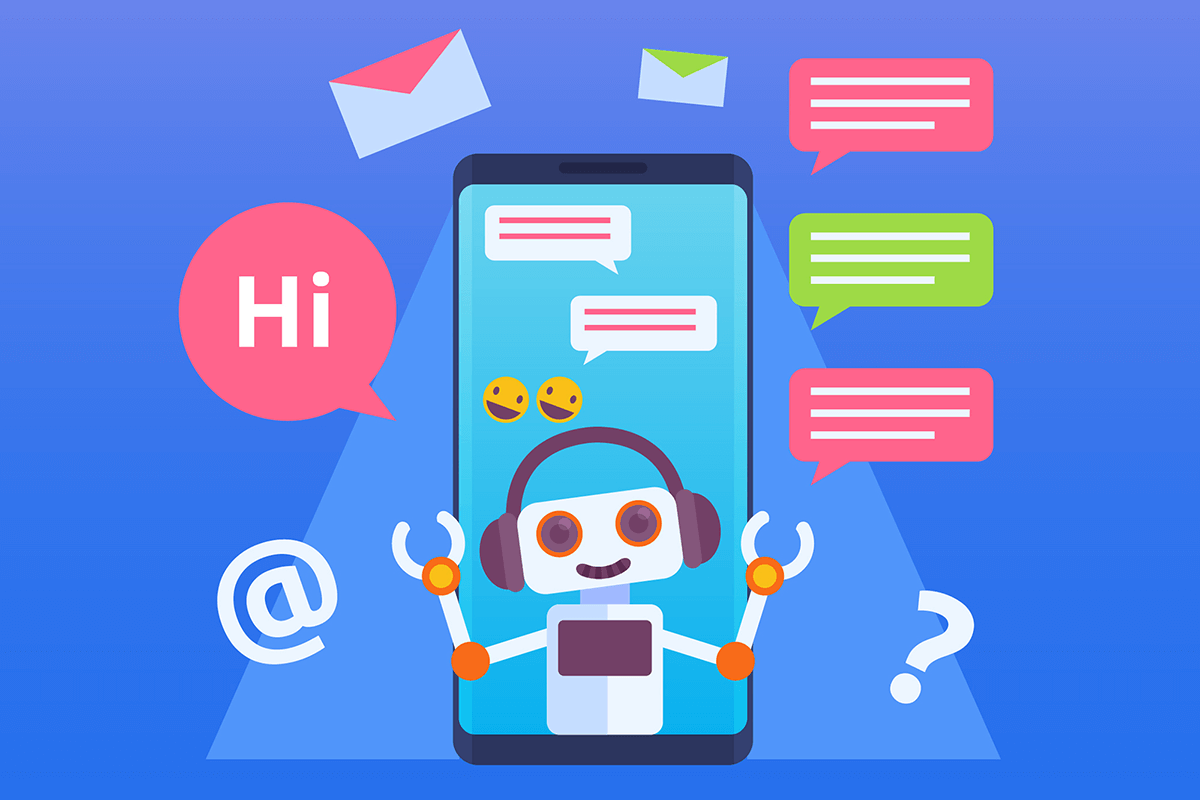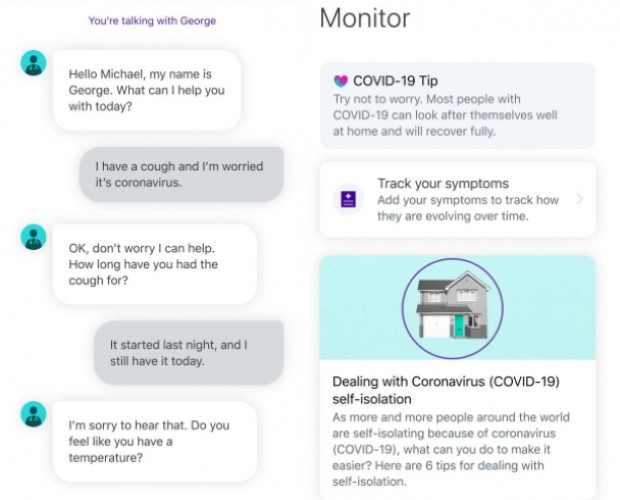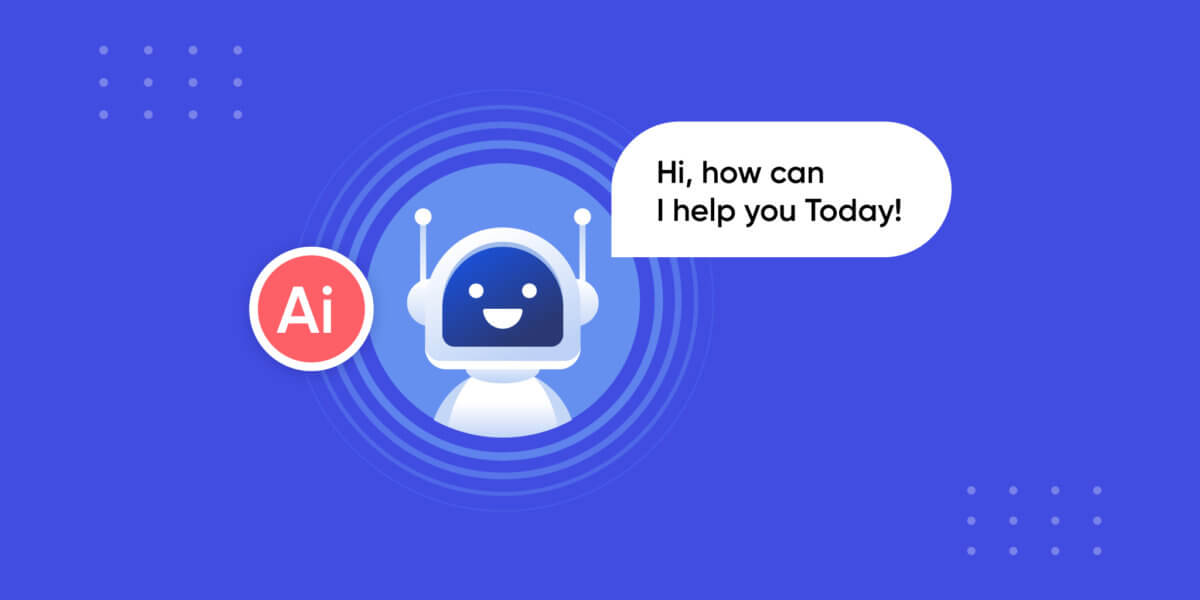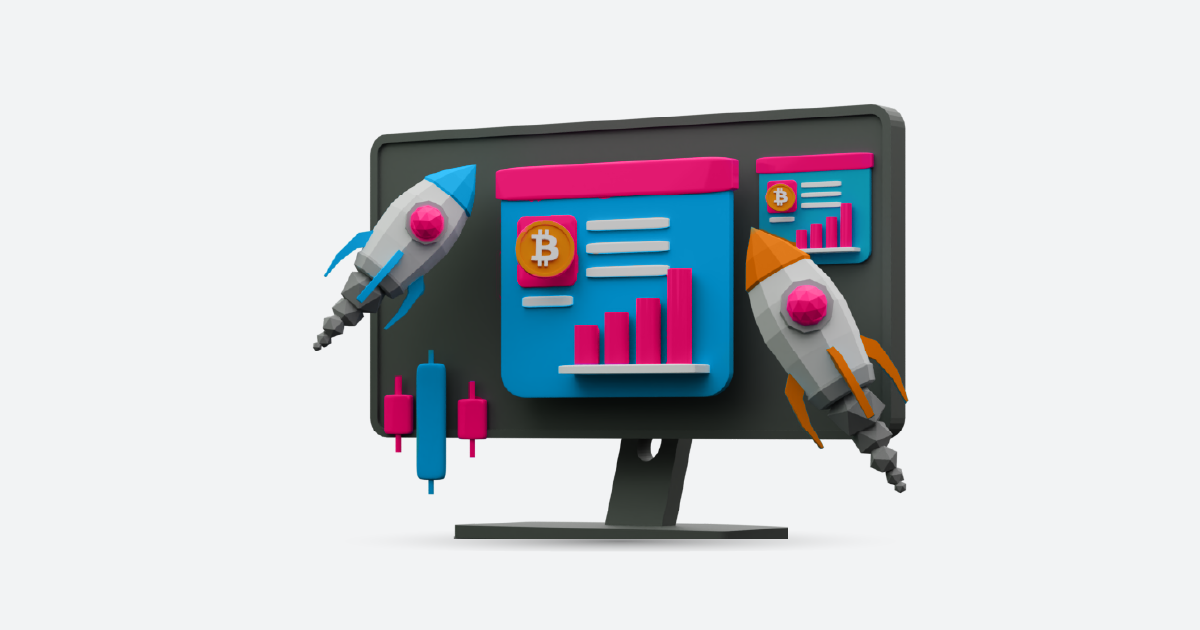In the fast-paced digital landscape, one technological marvel has been gaining considerable attention and transforming the way businesses interact with their customers – AI Chatbots. These virtual assistants, powered by artificial intelligence, have become integral in various industries, offering a seamless and efficient means of communication. Let’s delve into the world of AI Chatbots, exploring their applications, benefits, challenges, and the promising future they hold.
Understanding AI Chatbots

1. Defining AI Chatbots
AI Chatbots are sophisticated computer programs designed to simulate conversations with human users. Unlike traditional chatbots, AI-driven ones leverage machine learning algorithms and natural language processing (NLP) to comprehend and respond intelligently to user queries.
2. Evolution of Chatbots
The journey of chatbots began with simple rule-based systems, evolving into more advanced versions capable of understanding context and intent. The integration of AI technologies has propelled chatbots into a new era, enabling them to learn and adapt continually.
How AI Enhances Chatbot Capabilities
Artificial Intelligence empowers chatbots to analyze and understand user behavior, allowing for more personalized and contextually relevant interactions. Machine learning algorithms enable them to learn from data, making each conversation more intuitive and effective.
Applications of AI Chatbots
1. Customer Support
AI Chatbots have revolutionized customer support by providing instant assistance, resolving queries, and handling routine tasks. This ensures round-the-clock availability and enhances overall customer satisfaction.
2. E-commerce Assistance
In the realm of e-commerce, AI Chatbots streamline the shopping experience. They assist customers in finding products, offer personalized recommendations, and facilitate seamless transactions.
3. Healthcare Applications
The healthcare industry has embraced AI Chatbots to provide preliminary medical information, schedule appointments, and offer mental health support. These applications enhance accessibility to healthcare services.
Benefits of AI Chatbots
1. 24/7 Availability
Unlike human agents, AI Chatbots operate tirelessly, offering 24/7 support. This ensures businesses can cater to customer needs at any time, transcending geographical constraints.
2. Improved Customer Experience
The ability of AI Chatbots to understand user preferences contributes to a more personalized customer experience. This, in turn, fosters customer loyalty and satisfaction.
3. Cost Efficiency
Implementing AI Chatbots results in cost savings for businesses by automating routine tasks, reducing the need for extensive human involvement in customer support and other processes.
Challenges in AI Chatbot Development
1. Natural Language Processing (NLP) Challenges
The complexity of human language poses challenges in developing NLP algorithms that can accurately understand and interpret various nuances in communication.
2. Privacy and Security Concerns
As Chatbots handle sensitive information, ensuring robust privacy and security measures is crucial. Instances of data breaches raise concerns about the ethical use of AI in this context.
Implementing AI Chatbots Successfully
1. Choosing the Right Platform
Selecting the appropriate platform for implementing AI Chatbots depends on the specific needs and goals of a business. Cloud-based solutions, for instance, offer scalability and flexibility.
2. Customization and Training
Customizing AI Chatbots to align with the brand’s personality and training them with relevant data are pivotal steps for successful implementation. Continuous training ensures they stay relevant.
3. Monitoring and Continuous Improvement
Regularly monitoring Chatbot interactions and gathering user feedback contribute to ongoing improvements. This iterative process ensures the chatbot evolves and remains effective over time.
Future Trends
1. Integration with Voice Assistants
The convergence of Chatbots with voice assistants is an exciting trend, enabling users to engage in more natural and conversational interactions.
2. Emotional Intelligence in Chatbots
Future developments in Chatbots aim to imbue them with emotional intelligence, allowing them to understand and respond to human emotions effectively.
3. AI Chatbots in Virtual Reality
As virtual reality gains traction, Chatbots are expected to enter virtual spaces, offering immersive and engaging experiences.
Impact on Job Market
1. Redefining Customer Service Roles
The rise of Chatbots prompts a shift in traditional customer service roles, emphasizing the need for human agents to focus on complex queries that require emotional intelligence.
2. Opportunities in AI Chatbot Development
Concurrently, the surge in Chatbot implementation creates opportunities for developers, data scientists, and UX designers to contribute to this evolving field.
Ethical Considerations
1. Bias and Fairness
Addressing biases in AI algorithms is crucial to ensure fair and unbiased interactions, as unchecked biases can lead to unintended consequences.
2. Transparency in AI Algorithms
Maintaining transparency in how Chatbots operate fosters trust. Users should have a clear understanding of how their data is used and processed.
User Interaction and Engagement
1. Creating a Conversational Experience
The success of Chatbots hinges on their ability to create a natural and engaging conversation. Crafting a conversational experience is essential for user satisfaction.
2. Personalization in AI Chatbots
Tailoring interactions based on user preferences enhances the personalization aspect, making the conversation more meaningful and relevant.
The Future Landscape of AI Chatbots
1. Emerging Technologies Shaping the Future
Innovations such as quantum computing and advancements in neural networks are poised to reshape the capabilities of Chatbots, unlocking new possibilities.
2. Predictions and Speculations
Experts speculate on the trajectory of Chatbots, forecasting their integration into various aspects of daily life and envisioning groundbreaking applications.
Case Studies with Record-Breaking Success
Case Study 1: H&M’s AI Chatbot Revolution

H&M, the global fashion retailer, implemented an AI Chatbot to enhance customer service and streamline the shopping experience. The Chatbot provided personalized fashion recommendations, handled queries about product availability, and assisted with order tracking. As a result, H&M reported a 30% increase in customer satisfaction and a 25% boost in online sales within the first six months of deployment.
Case Study 2: Babylon Health’s Virtual Medical Assistant

Babylon Health, a pioneer in digital healthcare, introduced an AI-driven virtual medical assistant to provide users with preliminary medical advice and facilitate appointment scheduling. This Chatbot has performed over one million consultations, reducing the burden on healthcare professionals and improving accessibility to healthcare services. The success of Babylon Health’s Chatbot has led to its integration into the UK’s National Health Service (NHS), where it has been instrumental in enhancing patient care.
Case Study 3: KLM Royal Dutch Airlines’ Customer Support Chatbot

KLM launched an AI Chatbot named BlueBot (BB) to assist passengers with booking flights, providing travel information, and managing reservations. The Chatbot’s ability to handle thousands of queries simultaneously led to a 40% reduction in response times and improved overall customer satisfaction. BB’s success has set a new standard in the aviation industry, demonstrating the potential of AI Chatbots in delivering exceptional customer service.
Influencer Quotes and Tweets
Elon Musk (@elonmusk) “AI Chatbots are transforming customer service. The level of personalization and efficiency they bring is just the beginning. Exciting times ahead! #AI #Chatbots”
Gary Vaynerchuk (@garyvee) “Businesses not leveraging AI Chatbots are missing out big time. These virtual assistants are game-changers in customer engagement. Adapt or get left behind! #BusinessGrowth #AIChatbots”
Satya Nadella (@satyanadella) “AI Chatbots are at the forefront of digital transformation. They offer unparalleled scalability and personalization, driving innovation across industries. #MicrosoftAI #FutureOfWork”
Conclusion
In conclusion, AI Chatbots have emerged as indispensable tools, reshaping the way businesses and individuals interact. Their applications span across industries, offering benefits like 24/7 availability, improved customer experience, and cost efficiency. However, challenges in development and ethical considerations necessitate careful implementation. As we navigate the evolving landscape of Chatbots, staying attuned to future trends and technological advancements will be key.
Experience the future of AI Chatbots with a personalized demonstration from AIM Technologies. Witness firsthand how our innovative solutions can elevate your business. Don’t miss out — request your demo today!
FAQs
Can Chatbots truly understand human emotions?
- While advancements are being made, current Chatbots are more adept at recognizing patterns associated with emotions rather than truly understanding them.
Are there risks of job loss due to Chatbot implementation?
- Chatbots are more likely to redefine job roles than replace them entirely, emphasizing the need for human intervention in complex scenarios.
How do businesses ensure the privacy of user data handled by Chatbots?
- Implementing robust encryption, secure data storage, and adherence to privacy regulations are crucial steps for ensuring user data privacy.
Can Chatbots be integrated with existing customer service platforms?
- Yes, Chatbots can be seamlessly integrated with existing customer service platforms, enhancing efficiency and responsiveness.
What role does machine learning play in the development of Chatbots?
- Machine learning enables Chatbots to learn from data, adapt to user behavior, and continually improve their interactions.
Panduan Lengkap Main Slot Online Gacor dengan RTP Live Akurat
Kalau lo lagi nyari game slot online yang seru sekaligus cuan, ini saatnya buat kenal lebih dekat sama dunia slot online gacor. Dengan fitur kekinian dan bonus melimpah, slot rp777 online nggak cuma jadi hiburan, tapi juga peluang buat dapet jackpot besar. Tapi, sebelum lo gas, penting banget buat paham soal RTP (Return to Player) dan gimana cara milih slot yang lagi gacor hari ini. Yuk, simak sampai habis, biar nggak cuma main asal spin!
Apa Itu RTP dalam Slot Online?
1. Pahami Dulu Apa Itu RTP
RTP atau Return to Player adalah istilah penting yang harus lo tahu kalau mau main slot. Jadi, RTP ini persentase dari total taruhan yang nantinya bakal balik ke pemain asiabet.bid. Misalnya, kalau sebuah game punya RTP 96%, artinya dari total taruhan Rp100,000, secara teori bakal balik Rp96,000 ke pemain dalam jangka waktu panjang.
Tapi, inget ya, ini dihitung dari jutaan putaran, jadi hasil tiap spin lo tetap acak. RTP cuma kasih gambaran umum tentang seberapa besar peluang game itu kasih cuan.
2. Kenapa RTP Penting?
Karena RTP nentuin seberapa “ramah” sebuah game buat dompet lo. Game koi288 dengan RTP tinggi (biasanya di atas 96%) lebih nguntungin secara jangka panjang. Jadi, kalau lo mau main lebih efektif, pilih slot yang punya RTP besar.
Slot Gacor: Cara Menemukan yang Lagi “Panas”
3. Tips Cari Slot yang Lagi Gacor
Mau tau rahasia buat nemuin slot terbaik adm 4d? Nih, gue kasih bocorannya:
- Cek RTP Live: Banyak situs slot online terpercaya yang kasih update RTP live. Lo bisa lihat game mana aja yang lagi perform bagus hari ini.
- Perhatikan History Kemenangan: Kalau ada game kode4d yang baru aja kasih jackpot gede, ada kemungkinan game itu lagi “hot” dan bisa kasih kemenangan lebih sering.
- Cari Game Populer: Game yang lagi rame dimainkan biasanya punya peluang lebih bagus karena makin banyak pemain yang berkontribusi.
4. Ciri-Ciri Slot Gacor
Game kode4d.top yang lagi gacor biasanya punya tanda-tanda kayak gini:
- RTP tinggi, pastinya.
- Banyak fitur bonus, kayak free spin, multiplier, atau wild yang sering muncul.
- Ada peluang menang jackpot progresif atau hadiah besar lainnya.
Kenapa Main di Slot Online Terpercaya Itu Wajib Banget?
5. Game Dijamin Fairplay
Platform molaplay terpercaya pasti kerja sama sama provider resmi yang punya lisensi. Ini artinya semua game pakai sistem Random Number Generator (RNG) yang bikin hasil setiap putaran 100% acak dan adil.
6. Keamanan Data dan Transaksi Terjamin
Situs terpercaya selalu pake teknologi enkripsi buat lindungi data pribadi dan transaksi lo. Jadi, lo nggak perlu khawatir soal keamanan saat deposit atau withdraw.
7. Bonus dan Promo Nggak Palsu
Situs slot yang oke selalu kasih bonus dengan syarat dan ketentuan yang jelas. Mulai dari bonus selamat datang, cashback, sampai free spin, semua transparan dan beneran bikin lo untung.
Cara Maksimalkan Pengalaman Main Slot Online
8. Pilih Game Judi Bola Online yang Sesuai
Nggak semua game online itu cocok buat lo. Pahami dulu jenis-jenis taruhan bolaklik sebelum mulai:
- RTP Tinggi: Pilih yang RTP-nya minimal 96%.
- Volatilitas: Kalau mau menang kecil tapi sering, pilih yang volatilitas rendah. Kalau lo sabar dan cari jackpot besar, main di yang volatilitas tinggi.
- Tema yang Lo Suka: Dari slot bertema mitologi, petualangan, sampai futuristik, pilih yang bikin lo betah main.
9. Atur Budget, Jangan Keblablasan
Main togel server thailand itu buat fun, bukan buat nyusahin diri sendiri. Jadi, selalu tentuin budget sebelum main di slot thailand agentotoplay.cc dan jangan melebihi batas itu.
Cara atur uang main yang efektif:
- Bagi modal jadi beberapa sesi kecil biar mainnya nggak cepat habis.
- Kalau kalah, jangan langsung balas dendam. Terima aja, terus coba lagi lain waktu.
10. Manfaatkan Bonus Maksimal
Bonus wak5000.link bisa jadi jalan ninja buat lo main lebih lama tanpa keluar modal lebih. Cari yang kayak gini:
- Bonus New Member: Biasanya berupa tambahan deposit atau free spin.
- Promo Harian: Situs sawit188 kasih cashback atau reward khusus buat pemain aktif.
- Program VIP: Kalau lo sering main di kaisar303.top, ada program loyalitas yang kasih benefit ekstra.
11. Latihan di Mode Demo
Jangan langsung taruhan pakai uang asli kalau lo belum ngerti cara mainnya:
- Mode demo cocok buat lo pelajari mekanisme game.
- Eksperimen dengan strategi tanpa takut rugi.
Manfaat Cek RTP Live
Salah satu rahasia main slot vip gacor adalah cek RTP live. Kenapa ini penting banget? Karena RTP live kasih lo info real-time tentang game mana yang lagi cuan.
Keunggulan cek RTP live:
- Lo tau game mana yang lagi bayar lebih dari biasanya.
- Bantu lo hindari slot yang lagi “dingin.”
- Memaksimalkan peluang menang dengan data akurat.
Keunggulan Slot Online Dibanding Casino Fisik
12. Bisa Main Kapan Aja
Nggak perlu jauh-jauh ke casino, lo bisa main slot pt777.link kapan pun dan di mana pun. Tinggal buka HP atau laptop, langsung gas!
13. Pilihan Game Lebih Banyak
Slot online punya ratusan bahkan ribuan game dengan tema dan fitur yang beda-beda. Dari yang klasik sampai yang modern, semuanya ada.
14. Taruhan Fleksibel
Mau taruhan kecil? Bisa. Mau all-in? Juga bisa. Situs slot terpercaya resmi kasih kebebasan buat main sesuai gaya lo.
Tips Supaya Makin Cuan
15. Main di Jam Ramai
Beberapa pemain percaya kalau main di jam-jam ramai bisa kasih peluang menang lebih besar karena aktivitas taruhan yang tinggi.
16. Pahami Fitur Game
Baca dulu cara kerja fitur kayak wild, scatter, atau multiplier. Kalau lo ngerti, lo bisa manfaatin mereka buat dapet cuan lebih banyak.
17. Bersenang-Senang, Jangan Terlalu Serius
Inget, tujuan main slot itu buat hiburan. Jangan terlalu fokus cari untung sampai lupa nikmatin gamenya.




